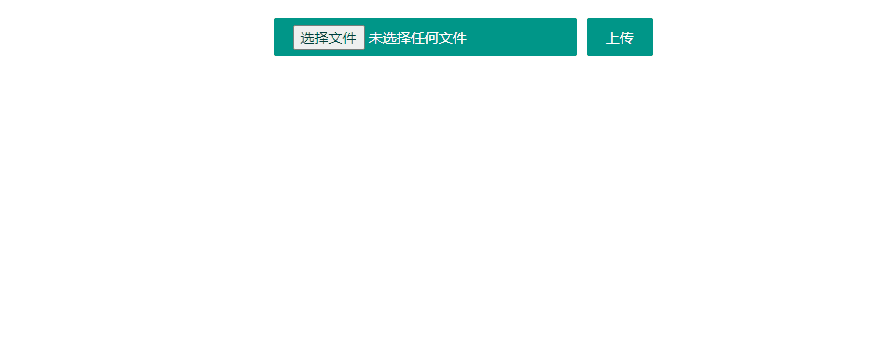Flask 上传图片并灰度显示
December 6, 2021
3 min read
#Flask
#python
Flask 上传图片并灰度显示
接到了一个小需求:使用flask写上传图片并灰度显示
刚好没写过python的后端,来试一试

代码
使用了layui的组件
app.js
import logging
import os
from flask import Flask, render_template, request
from PIL import Image
app = Flask(__name__)
# 映射到index.html
@app.route('/')
def index():
return render_template('index.html')
# 指定post请求
@app.route('/upload', methods=['post'])
def upload():
# 文件不存在就退出
if ('file' not in request.files):
print('no found file')
return
img = request.files['file']
path = os.path.abspath(os.path.dirname(__file__)) + "/static/photo"
# 日志打印
app.logger.info("path: " + path)
# 创建文件夹
if os.path.exists(path) == False:
os.makedirs(path)
file_path = path + "/" + img.filename
app.logger.info('file_path: ' + file_path)
# 保存图片
img.save(file_path)
img2 = Image.open(file_path)
# 灰度变化
Img = img2.convert('L')
Img.save(file_path)
fname = '/static/photo/' + img.filename
app.logger.info(fname)
return render_template('view.html', fpath=fname)
if __name__ == '__main__':
app.run()
# todo 可以增加的功能,指定上传类型,生成唯一图片标识符防止图片名重复index.html
<!DOCTYPE html>
<html lang="en">
<head>
<meta charset="UTF-8">
<title>上传</title>
<link rel="stylesheet" href="/static/layui/css/layui.css">
<script src="/static/layui/layui.js"></script>
<script src="/static/js/jquery-3.6.0.js"></script>
<style>
body {
text-align: center;
padding: 20px;
}
form {
width: 500px;
margin: auto;
}
</style>
</head>
<body>
<form method="post" action="/upload" enctype="multipart/form-data" class="layui-form">
<div class="layui-form-item wu-example" id="uploader" style="display: inline-block;">
<div class="layui-input-block" >
<input type="file" name="file" class="layui-btn" value="添加文件"/><button class="layui-btn" lay-submit lay-filter="*">上传</button>
</div>
</div>
</form>
<script>
</script>
</body>
</html>view.html
<!DOCTYPE html>
<html lang="en">
<head>
<meta charset="UTF-8">
<title>图片显示</title>
<style>
body {
text-align: center;
padding: 20px;
}
</style>
</head>
<body>
<img src="{{ fpath }}" style="height: 300px;width: 500px" alt="pic">
</body>
</html>部署
使用了gunicorn部署flask
在阿里云上安装pyinstaller,进行打包,然后安装gunicorn(有很多依赖组件)
将文件上传到云服务器
安装完成后输入
gunicorn -w 2 -b :8080 app:app这里我踩坑了,理论上gunicorn -w 2 -b 127.0.0.1:8080 app:app也是可以的,但是我那个版本好像不行,然后后面那个app:app,前面那个是你运行的文件名,后面那个是你Flask的对象,就像我app.py(前一个app)中的app = Flask(__name__)
然后正常访问即可
参考: